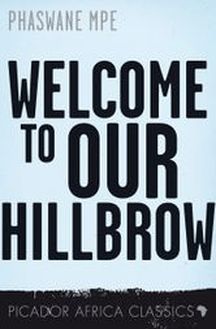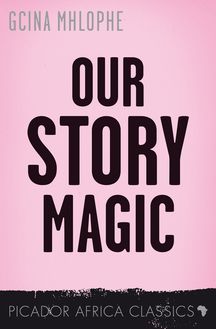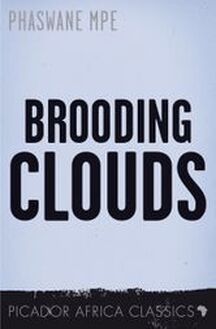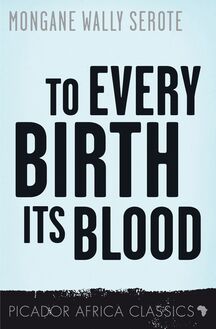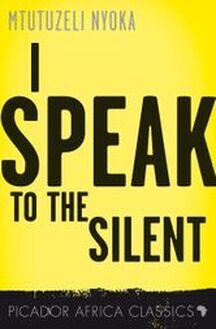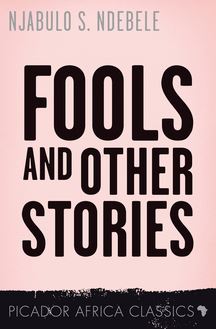To Every Birth Its Blood , livre ebook
169
pages
English
Ebooks
2015
Vous pourrez modifier la taille du texte de cet ouvrage
Obtenez un accès à la bibliothèque pour le consulter en ligne En savoir plus
Découvre YouScribe en t'inscrivant gratuitement
Découvre YouScribe en t'inscrivant gratuitement
169
pages
English
Ebooks
2015
Vous pourrez modifier la taille du texte de cet ouvrage
Obtenez un accès à la bibliothèque pour le consulter en ligne En savoir plus
Publié par
Date de parution
01 avril 2015
Nombre de lectures
2
EAN13
9781770104198
Langue
English
Lyrical, empathetic and hauntingly powerful, To Every Birth Its Blood explores the subjective experiences of a range of voices and characters who live, love and struggle in 1970s apartheid South Africa. Serote’s piercing treatment of the brutality of state violence, beatings, arrest, solitary confinement and exile is framed by black apathy, political awakening and the shift into violent dissent. Originally published in 1981, To Every Birth Its Blood, Serote’s debut novel, remains a seminal work that brings to life in vivid detail the birth of a revolutionary society.
Publié par
Date de parution
01 avril 2015
Nombre de lectures
2
EAN13
9781770104198
Langue
English
About Picador Africa Classics
The Picador Africa Classics imprint, launched in 2014 by Pan Macmillan South Africa, aims to build a catalogue of exceptional titles that may be out of print or lack presence in digital form. It builds on the historical concept of something like the African Writers Series as well as a publisher such as Ravan Press, which showcased works of excellence by African writers.
As a leading South African publisher, Pan Macmillan’s initial focus is on classics of South African literature, both fiction and non-fiction, but we hope to expand this to writers from other countries on the African continent.
MONGANE WALLY SEROTE was born in Sophiatown, Johannesburg, on 8 May 1944, just four years before the National Party came to power in South Africa. In 1969 he was arrested and detained for nine months in solitary confinement under the Terrorism Act. In 1972 Serote’s first collection of poetry was published, Yakhal’inkomo , which won the Ingrid Jonker Prize for debut poetry in English. His debut novel, To Every Birth Its Blood , first published by Ravan Press in 1978, offers a riveting insight into political activity in 1970s South Africa. Serote’s seventh poetry collection, Third World Express (David Philip: 1992) won the Noma Award for Publishing in Africa in 1993. Serote has held a variety of positions in the African National Congress, including Head of the ANC’s Department of Arts and Culture, and served as a Member of Parliament and Chairman of the Portfolio Committee for Arts, Culture, Language, Science and Technology. A deeply spiritual man, Serote is involved in healing South Africa through his work as a traditional healer and as CEO of the Freedom Park Trust. Serote holds honorary doctorates from the Universities of KwaZulu-Natal and the Transkei. His work as a poet is far from over. Those who love this land and yearn for its reconstruction recognise the need for honest talk and an integrated vision.
To Every Birth Its Blood
By the same author
POETRY BOOKS
Yakhal’inkomo
Tsetlo
No Baby Must Weep
Behold Mama Flowers
The Night Keeps Winking
A Tough Tale
Third World Express
Come and Hope with Me
Freedom, Lament and Song
ESSAY COLLECTIONS
On the Horizon
Hyenas
NOVELS
Gods of Our Time
Scatter the Ashes and Go
To Every Birth Its Blood
Mongane Wally Serote
PICADOR AFRICA
First published in 1978 by Ravan Press
This ebook edition published in 2015 by Picador Africa Classics
an imprint of Pan Macmillan South Africa
Private Bag X19, Northlands Johannesburg, 2116
www.panmacmillan.co.za
e-ISBN 978-1-77010-419-8
© in the text Mongane Wally Serote 1978
© in the text and final arrangement Pan Macmillan South Africa (Pty) Ltd 2015
All rights reserved. No part of this publication may be reproduced, stored in or introduced into a retrieval system, or transmitted in any form or by any means (electronic, mechanical, photocopying, recording or otherwise), without the prior written permission of the publisher. Any person who does any unauthorised act in relation to this publication may be liable to criminal prosecution and civil claims for damages.
This book is a work of fiction. Any resemblance to actual persons, living or dead, is purely coincidental.
Cover design of this edition by K4
Contents
PART I
ONE
TWO
THREE
FOUR
FIVE
SIX
SEVEN
EIGHT
PART II
NINE
TEN
ELEVEN
TWELVE
THIRTEEN
FOURTEEN
FIFTEEN
Part I
One
S O, WHEN SHE AND I WALKED into the house after we had been in the street so long, I knew that another time was coming when we would have to be in the street again. That moment, as she went about the house opening the windows, taking off her shoes, unbuttoning her blouse, looking calm and more friendly, I wanted to weep. I did not know how I was going to tell her, ‘Baby, most things about this earth want you to run, want to make you weary, want you to faint.’
So I sat back on the chair. I said, ‘Honey, why don’t you play Nina Simone?’
She was smiling as she came softly towards me and, hugging me, asked whether I wanted tea or whether she must send a kid to the shebeen for beer. I said beer. Beer makes things easy, I thought to myself. ‘Streets full of people all alone,’ Nina was saying.
Yes, when Lily and I were walking, coming home, I was in a good loving mood. I felt very close to her. I knew she was one person I could say I knew. Lily can enjoy a person like a child enjoys a peach. You see the juice flowing down her tender, strong fingers, towards her smooth arms. Her teeth dig in, right into the flesh; you can see her thick, warm lips embrace the peach, tasting its flesh. Something about her laughter, when she really laughs, not when she laughs instead of crying, has made me discover many things, even about myself.
I was looking at her legs. Long legs which give her a tall, steady gait as her thigh muscles thrust and relax. I watched her walk from the wardrobe to the table, where she took out the money from her bag. Then she moved to the door. I heard her call our little friend’s name. My mother has called me that way, so many times, in that long dragging way, as if my name were spaghetti threads. Her lips tasting the name, something about the voice becoming tender. They spoke at the door, I heard the little footsteps run and fade. Lily, almost talking to herself, said, ‘While you have your beer I will have my tea.’
I took off my shoes. I took off my socks. I unbuttoned my shirt and sat back. It felt so good, really, so good to know I was not going to faint. I had been running, oh, I was weary, but now I knew I was not going to faint. The noise of the Primus stove started. She put the kettle on, placed a glass and a cup on the table, and came over to sit next to me and enjoy me.
‘Do you feel good about the theatre now?’
‘I do not know, Baby,’ I said.
‘What do you think is going to happen?’
‘The worst,’ I said, ‘is that we could all get arrested. At the least, we could be banned.’ There was silence. I could feel her thinking, her mind fidgeting with the future.
‘Don’t faint Baby, please child, don’t faint,’ I said.
‘No, I won’t,’ she said. Our eyes met. I waited for her to kiss me. But I could feel her waiting for me to kiss her. I was not about to do that. Her eyes were digging into mine. There was silence. I thought, God, something is going to break. I waited.
There was a knock on the door. Our little friend walked in, put the beer bottle on the table. He saw me.
‘Ah, Abuti-Tsi, was that your car you came in yesterday?’
‘No, it belongs to some white people,’ I said.
‘Where you work?’
‘No, Vusi, I do not work for white people,’ I said. I watched Lily wiping the glass. She brought the beer and the glass next to me. Her face told me things were happening now.
‘Who do you work for?’
‘Vusi, I will tell you tomorrow,’ I said. ‘Look, take five cents, buy yourself something, we will talk tomorrow.’
‘Not five cents,’ Lily snapped. I retreated. She gave Vusi two cents. Vusi looked at me, was about to say something, but walked out after saying bye-bye to me and then to Lily. She poured out some tea and sat at the table.
‘Lily, do you think if things came to the worst, you would be all right?’ I knew I could never bear to see Lily break down. I looked at her. Her eyes, ever so gentle, made me want to protect her: her face, gentle, beautiful, stormy like the many journeys we had had together; those brutal gentle journeys which every time took us into a deep sleep, a dream in which we would be locked into each other; and when we broke, we would realise we were trying to be one.
‘Are you sure?’
‘I am,’ she said.
‘Are you sure?’
‘What do you want me to say?’ she asked. I sensed anger in her voice.
‘I am not assured.’
‘I will never be able to reassure you.’ How true, I thought. But still, something was not in line; God, something was missing. I put on a record. The guitar started screaming, the humming voice, like the ocean, vast, troubled in its calm, came in: ‘Be on my side I will be on your side, Baby.’ I thought wow, Buddy Miles, what is going to happen now, what are we going to do? ‘I shot my Baby.’
I was riding on the wings of the beer now. I went out to get another one. When I came back, Lily was in her house mood. She was peeling potatoes. A pot was dancing on the stove. The room was hot. Miriam Makeba’s voice had filled the room. Everything in the house made me fall in love.
‘Baby, let’s save this boat today,’ I said. ‘It’s not going for the storm.’
‘Stop being smart,’ she said. Her voice told me we were, after all, heading for the storm. I have always tried to talk to my Baby with music. So, I thought, Ausi-Miriam has her way about this. I pushed the button to reject. Flipped the record and put on ‘Woza’. And Miriam’s voice and Hugh’s trumpet took over the house. I could smell curry. The room was hot. My Baby never looked at me. Something about the record, the house, everything, maybe also the beer, made me sad now. I started to long for things I did not know. Hugh’s trumpet and Miriam’s voice held each other as if they were fire and wind, ready to drown everything around them. I wondered where Hugh was, where Miriam was, when would they come back home. I thought, both of them know Alexandra so well. I began to put my shoes on. I was also thinking how I was going to put it to my Baby. My Baby, my feather has broken, I can’t fly, I want to hide? No. My Baby, I will be back? No. What was I going to say?
‘Where are you going?’ She took me by surprise. I stood up, lost in thought, and played with my beard.
‘I want to see the boys out t
